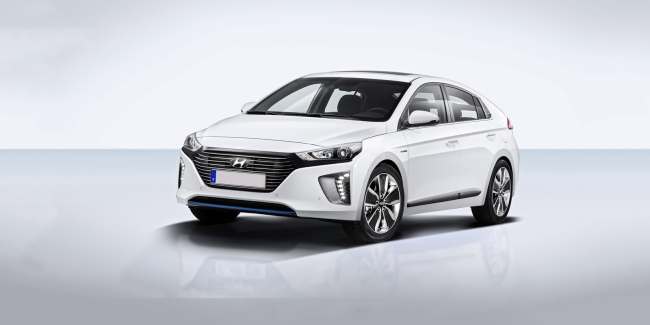Automobiles
Hyundai, Kia become world’s No. 2 green carmaker
[THE INVESTOR] Hyundai Motor and its sister company Kia together became the world’s second-largest green carmaker in the first half of the year, taking the No. 2 spot three years earlier than they had planned.
According to IHS Markit, Hyundai and Kia sold a total of 102,480 units of eco-friendly vehicles between January and June, a 126.1 percent increase from the same period last year and similar to their combined annual sales last year. The two carmaking units under Hyundai Motor Group, South Korea’s second-largest conglomerate, sold a total of 107,882 units of green cars last year.
 |
Hyundai IONIQ. |
Driven by the record high sales of electric and hybrid vehicles, particularly under the Ioniq brand, Hyundai and Kia beat their Japanese rival Honda for the first time. Honda sold 80,780 green cars in the first half, while Toyota kept its top spot with 598,136.
By category, the sales of electric cars grew 151.7 percent from 3,948 to 9,936 followed by plug-in hybrid with a 136 percent increase from 758 units to 1,792. Sales of hybrid vehicles also doubled from 40,518 to 90,659.
In the electric car segment, Hyundai and Kia placed sixth, climbing five spots from six months before. The Renault-Nissan alliance and Tesla were the top two, followed by Chinese carmakers BAIC, Zotye and BYD.
As late starters, Hyundai and Kia joined the green car race with an LPG-electric hybrid vehicle -- Avante LPi Hybrid -- in 2009. Shortly after its debut, the carmakers also used a parallel-type architecture hybrid with their brands’ targets for mass markets, the Sonata and K5. And in 2013, Hyundai succeeded in developing the world’s first fuel-cell electric vehicle for commercial production.
Its Ioniq vehicles specifically targeted at green car enthusiasts around the world appear to have pushed its aim of achieving the second rank in the category, which the carmaker had previously hoped to achieve in 2020.
Debuted in 2016, Ioniq Hybrid was certified by the US Environmental Protection Agency as the most fuel efficient car sold around the world without a plug. Its electric version was also the most efficient electric car certified by the same agency.
Unveiling its green car road map last week, the automaker introduced a fuel cell powered SUV, with plans to reveal its name in January at the CES technology show in Las Vegas. By 2020, the carmaker plans to unveil 10 hybrids and 11 plug-in hybrids as well as eight electric car models.
In the first half, Hyundai will introduce a small electric SUV model based on its Kona platform, which can travel more than 390 kilometers per charge. It also plans to develop an electric vehicle with a driving range of 500 kilometers per charge as well as a luxury type under its Genesis brand by 2021, the company said.
“We have raised the production capacity by introducing a hybrid version of the Ioniq and Niro. Raising production capacity means that we can have essential parts for green cars like batteries at lower prices, and it also means that we can keep this technology development ongoing,” a Hyundai official said.
The reason that Hyundai seems to be highlighting its FCEVs and hybrids is that they are the most difficult and expensive of the green car segment. “EVs are relatively easy to produce and require far less parts, while FCEVs and hybrids are difficult to produce,” he said. By diversifying its green car lineups, the carmaker is also ready for the possible emergence of EVs but will keep its technology advancement further high than newcomers betting only with EVs, he added.
By Cho Chung-un/The Korea Herald (christory@heraldcorp.com)








